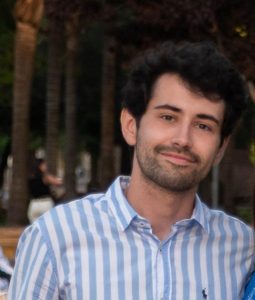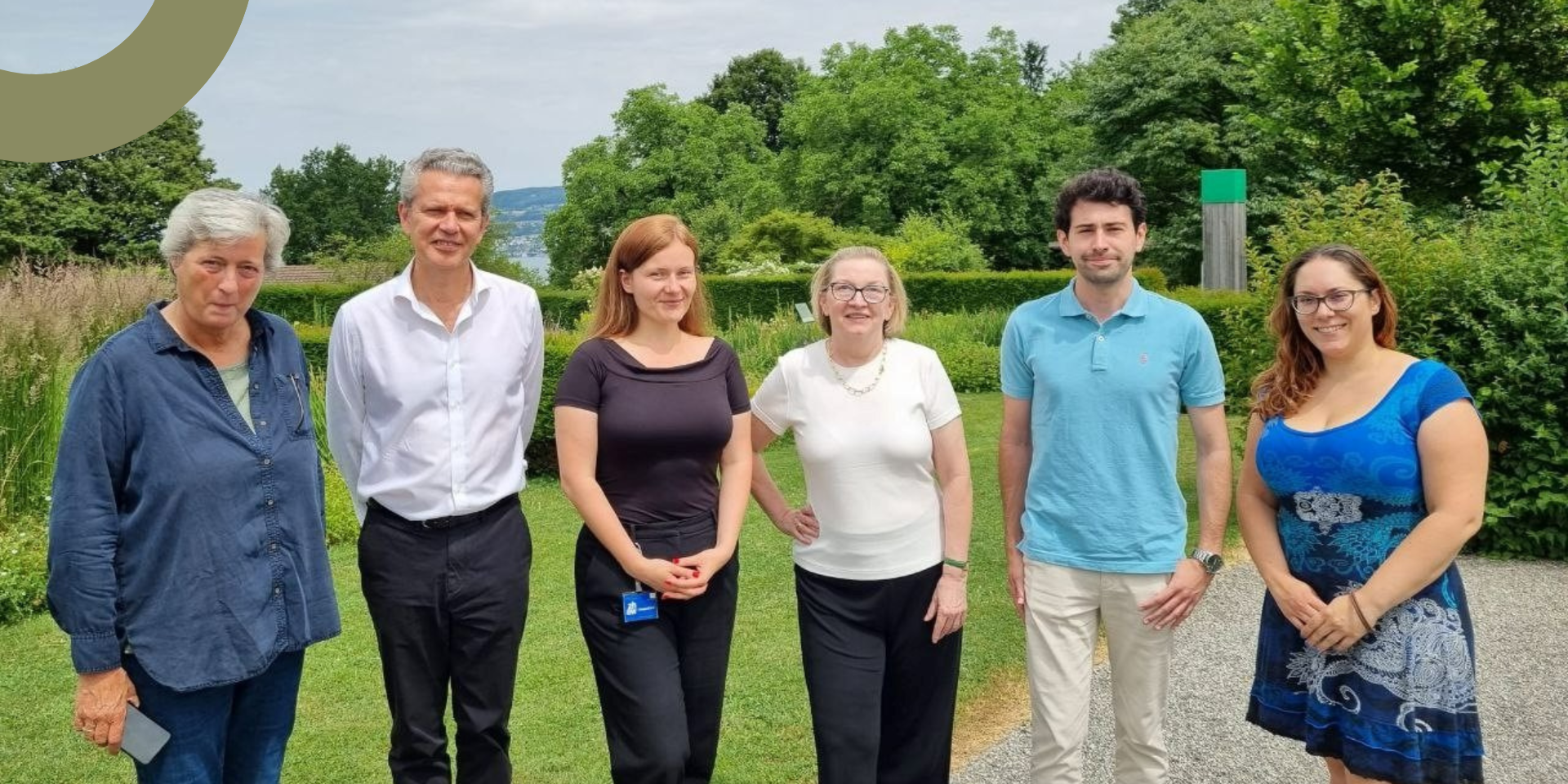The EELISA activity “ Aquaponics and ecological engineering: from low tech to high tech ” took place on June 20 th , 2023, in the Grüntal Campus of Schweizer Hochschulen für Angewandte Wissenschaften (ZHAW) in Wädenswil, Switzerland, jointly organized by both ZHAW and the Universidad Politécnica de Madrid (UPM). ZHAW holds a prominent position among Switzerland’s top universities specializing in practical and applied sciences, with 33 bachelor studies, 19 master studies and 14163 students. One of the foremost highlights of this event was the inaugural collaboration between an EELISA Community (Sustainable Food Production) and ZHAW, marking a significant milestone.
Prior to the main event day, there was a preliminary meeting among the presenting researchers, Dr. Morris Villarroel, Deputy Vice-Rector and Associate Professor at UPM; Dr. Ranka Junge, Professor at ZHAW; and Dr. Sarah Milliken, Researcher at the University of Greenwich. That day we toured the ZHAW facilities in Wädensvil , with a particular emphasis on areas dedicated to aquaculture, aquaponics, and ecological engineering. These areas showcased tests focused on trout and tilapia production, the development of circular economy for horticultural species cultivation, as well as the MODO (Mobile Ecotechnology Demonstration Object) project, which features a restroom and washing machine based on water purification and subsequent reuse.
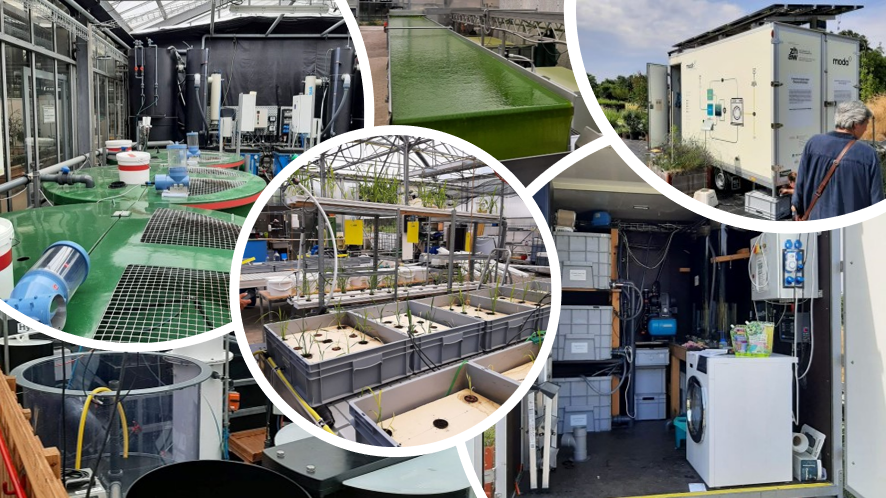
On June 20th, the main event took place, an EELISA activity where Dr. Ranka Junge opened the session at 9:00, introducing the speakers and ZHAW University. It was at that moment when Dr. Morris Villarroel gave the floor to Sofia Costa D’Aguiar, EELISA Executive Director, to talk about the EELISA community, a European alliance that encompasses the event and is named in tribute to Elisa Leonida Zamfirescu, the first female engineer in Europe.
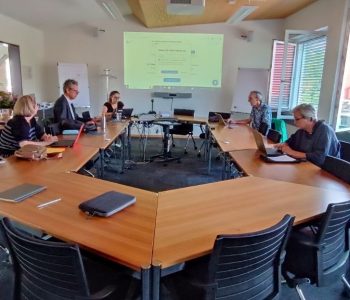
Later, at 9:30, Dr. Andreas Schönborn, Co-president of IEES International Ecological Engineering Society of ZHAW, spoke about Ecological Engineering, developing the concepts of natural cycles related to Nature-based solutions (NBS), actions to protect ecosystems and optimize infrastructure. Some of the projects developed based on these principles include the KREIS-Haus, which I will discuss later, or the Vertical Greening Systems.
Next, Dr. Sara Milliken spoke about Aquaponics as an NBS, once again integrating the concept of cyclic systems, but this time focusing on water recycling with nutrients and waste from fish for plant cultivation, highlighting the minimal yet highly efficient use of water in aquaculture. In this talk, Dr. Milliken discussed various projects, including The Plant in Chicago and Columbi Farms in Sweden, as well as aquaponic workshops carried out in Spain, specifically in Malaga and Seville.
At 11:30, Dr. Ranka Junge, one of the pioneers in aquaponics in both Switzerland and Europe, spoke about the Divergent Evolution of Technologies and the importance of knowledge in both low-tech and high-tech systems. The role of aquaponics in self-sufficiency was emphasized, contrasting with so-called Food Deserts, areas without food production, and the value of soil independence in productive systems and the social and spatial integration of aquaponic systems. Dr. Junge finally presented the different modalities of soilless cultivation (-ponics), the limitations of circularity, and the need to distinguish between the professional and leisure domains.
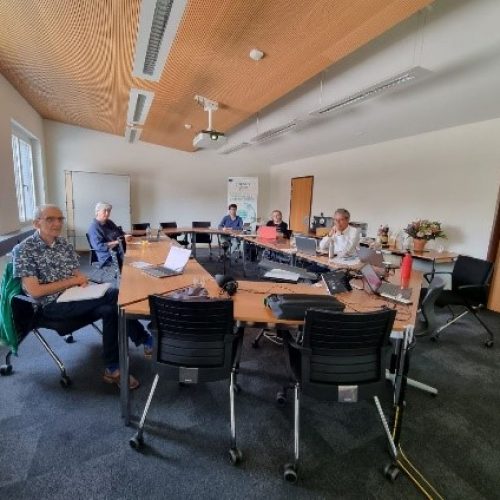
Dr. Morris Villarroel concluded the event by speaking about Enriching Environments for Fish and the Goldilocks Effect, emphasizing the need for further studies on fish welfare in aquaponics units, environmental enrichment (EE), sustainability, and animal welfare. He also presented the results of a project in which I participated regarding the use of pumps as EE in trout, concluding with the need to generate more engineering ideas for fish in recirculation aquaponics.
On June 21st, the planning meeting for the upcoming workshop took place with the assistance of Tetiana Kaufmann, Project Manager for Educational Development at ZHAW, followed by a visit to the KREIS-Haus (Climate and Resource Efficient Sufficiency House), previously mentioned, as an experience in a circular system, guided by the project leader Devi Bühler. The house, a residential unit, is a project of the Eco-technology research group at ZHAW and the Synergy Village association. It is constructed using natural and recycled materials, without concrete, and features a dry toilet that conserves water. The house also has a system that allows the reuse of nutrients as fertilizer for the rooftop garden. All water used in the house is recycled for irrigation. Additionally, the electricity supply for the house is provided by solar panels integrated into the glass roof and stored in batteries.
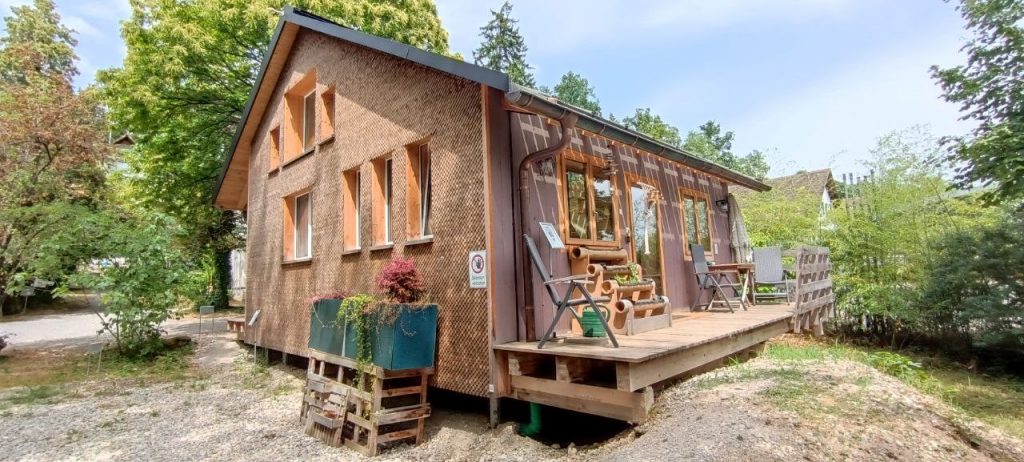
This workshop has provided us with a panoramic view of the mosaic of disciplines that make up circular projects in aquaculture, aquaponics, and ecological engineering, in order to pave the way for future joint research and educational projects.
With this event, we learned about the significance of having diverse viewpoints from different regions on a shared topic to enhance innovation and technological progress. By juxtaposing multiple ideas to formulate a project, we became aware of a shift in education towards project engineering, while staying connected to its roots. We were able to actively engage in the organizational framework of EELISA Communities, and strive to work hard to learn and use all the contributed ideas.
Álvaro de la Llave
More about Álvaro
